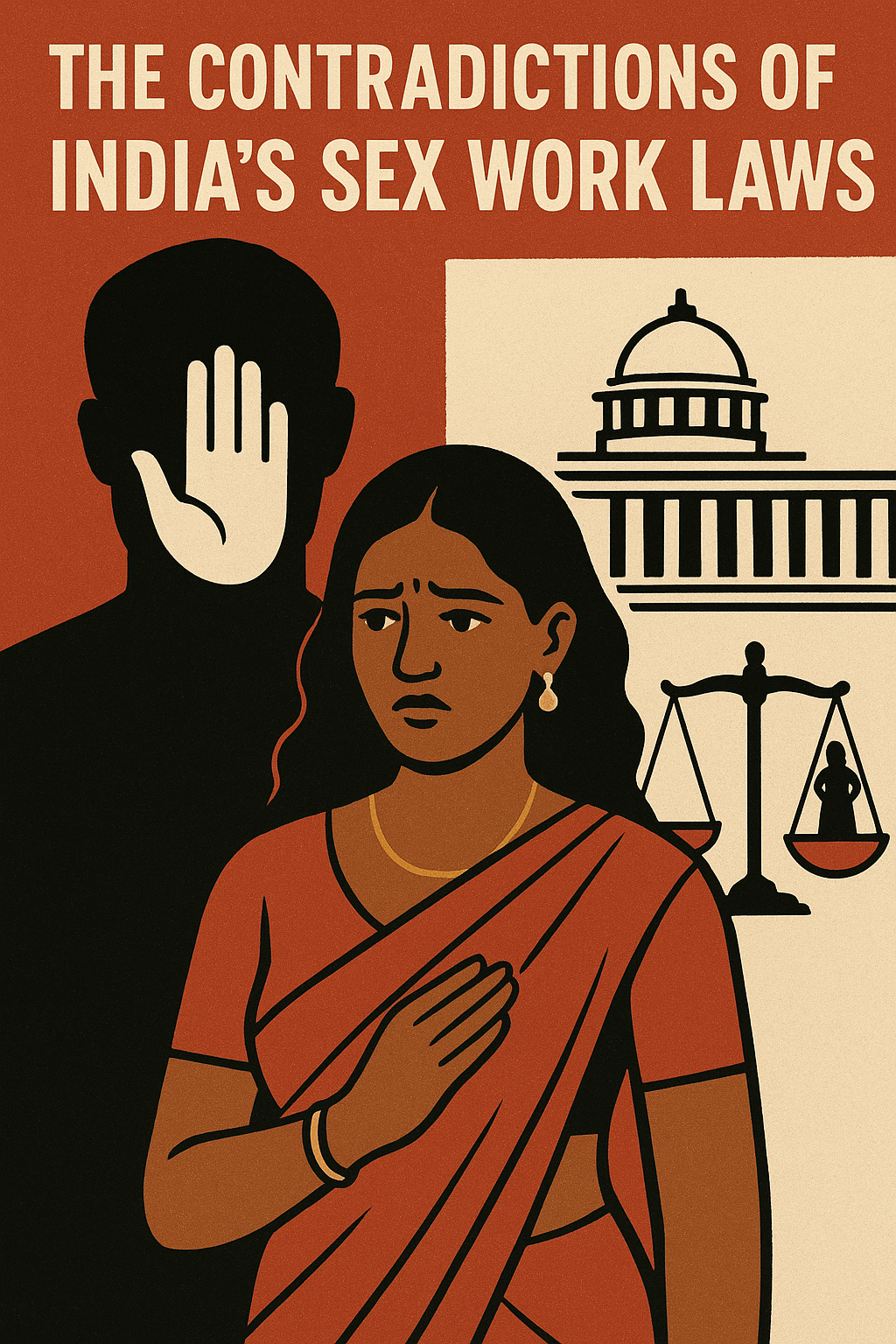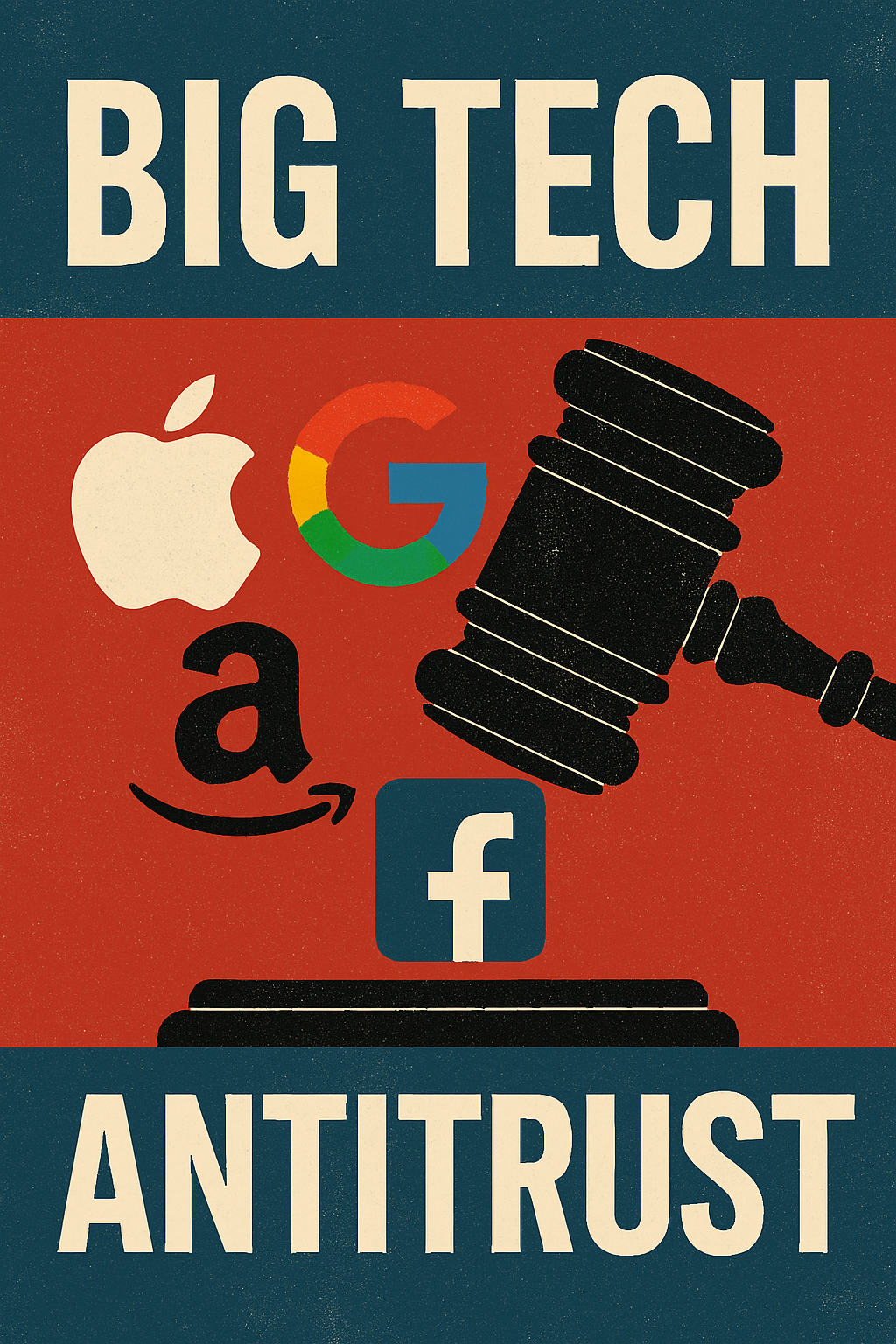



Author: Shruti Gupta
Institute: Student of UPES, Dehradun
1.1 The increased scrutiny from global regulators on Big Tech companies like Google, Amazon, Meta (formerly Facebook), and Apple comes amid accusations of monopolistic practices that displace competition, reduce consumer choice, and raise hurdles for smaller fare. And as one of the fastest-growing digital markets in the world, India has become a vital battleground for competition enforcement against these digital duopoly goliaths.
1.2 The Competition Commission of India (CCI), which functions as the antitrust watchdog in the country can investigate anti-competitive practices, market abuses, and mergers which are likely to impede competition within the relevant market. Given the oligopolistic control of some vital digital economy sectors like search engines, ecommerce, app stores, and online advertising, there is increasing apprehension that such firms may adopt anticompetitive practices that are detrimental to fair competition and market participants.
2.1.1 The backbone of India’s competition law system is defined and regulated under the Competition Act of Competition act 2002, aimed at promoting, protecting, and sustaining market competition, preventing practices that have harmful effects on competition or market structure resulting in the disruption of competition, and safeguarding the interests of consumers.
2.1.2 Important Aspects of the Competition Act of 2002:
2.1.2.1 Section 3: Prohibition of Anti-Competitive Agreements
2.1.2.1.1 Prohibits agreements that cause or are likely to cause an appreciable adverse effect on competition (AAEC) in India.
2.1.2.1.2 Involves cartels, exclusive distribution contracts, tie-in arrangements, and refusal to deal that may inhibit access to the market for other competitors.
2.1.2.2 Section 4: Abuse of Dominant Position
2.1.2.2.1 Empowers not to abuse the position of dominance to impose unfair terms on consumers or restrict competition. Includes predatory pricing, self-preferencing, refusal to deal, discrimination, and leveraging dominance in one market to enter another.
2.1.2.3 Sections 5 & 6: Regulation of Combinations (Mergers and Acquisitions)
2.1.2.3.1 Controls mergers, acquisitions, and combinations which may result in an appreciable adverse impact on competition in the Indian market.
2.1.2.3.2 Contains a provision for prior notification to the CCI for deals above set monetary thresholds.
2.2.1 The Indian Ministry of Corporate Affairs (MCA) released the report of the Committee on Digital Competition Law (CDCL), including a draft Digital Competition Bill, on March 12, 2024
2.2.2 Considering the specific issues presented by digital markets, ex-ante regulations are being contemplated in India through the Draft Digital Competition Bill, 2024.
2.2.3 The Draft Digital Competition Bill, 2024 has the following salient features:
2.2.3.1 Designation of Systematically Significant Digital Enterprises (SSDEs): Targets key digital enterprises that possess considerable market share and ensures compliance with competition law.
3.1.1 An enterprise is deemed as dominant under Section 4 of the Competition Act having a market position of a strength which enables it to remain unrestrained by competitive forces. Some of the Big Tech companies are under this scrutiny provision of anti-competitive conduct:
3.2.1 Understanding Dominance under the Competition Act, 2002
3.2.1.1 Under Section 4 of the Competition Act, 2002, an enterprise is deemed to be in a dominant position if it enjoys a position of strength in the relevant market, thereby enabling it to operate independently of competitive constraints or to appreciably influence market conditions to its advantage.
3.2.2 Google’s Antitrust Scrutiny by CCI
3.2.2.1 In recent years, Google LLC has been facing increased scrutiny from the Competition Commission of India (CCI) regarding its business practices. The CCI is investigating whether Google has been Amazon and Flipkart: Preferential Treatment and Exercise of Market Power
3.2.3 Amazon and Flipkart are two major players in India’s online retail industry. They have come under regulatory scrutiny for allegedly using their significant market power to engage in anti-competitive behaviour.
3.3.1 The increasing convergence of digital services and data ecosystems has brought to the fore significant concerns regarding unilateral conduct by dominant entities in contravention of Section 4 of the Competition Act, 2002. In this context, Meta Platforms Inc. (formerly Facebook Inc.) and its subsidiary WhatsApp LLC were subjected to antitrust scrutiny following the controversial modification of WhatsApp’s privacy policy in early 2021.
3.3.2 The Competition Commission of India, in CCI v. WhatsApp LLC (2021), suo motu initiated an investigation under Section 26(1) of the Act, observing that the revised privacy policy compelled users to accept comprehensive data-sharing terms with Facebook and its group entities as a precondition for continued access to the messaging service. The Commission prima facie held that such conduct could amount to an abuse of dominant position under Section 4(2)(a)(i) and 4(2)(c), as it imposed unfair and disproportionate conditions on users and potentially denied market access to competing platforms.
3.4.1 It has come under scrutiny from the Competition Commission of India (CCI) due to Apple’s monopolistic control of the iOS App Store ecosystem for alleged violations of Section 4 of The Competition Act, 2002. The key part of the probe is Apple’s anti-steering policies, under which Apple prohibits app developers from directing users to alternative payment mechanisms outside of the App Store.
3.4.2 In 2022, on the basis of information filed under Section 19(1)(a) of the Act, CCI ordered an investigation into Apple’s conduct on the App Store, concluding that it was appropriate to investigate further into Apple’s conduct to investigate whether Apple may have abused its dominant position in the app distribution services market for iOS. The CCI found that Apple required all developers to use Apple’s proprietary In-App Purchase (IAP) for digital goods and services, and that developers have been required to pay Apple an excessive commission (in the range of 15-30 percent) in the process. These restrictions raised questions under Section 4(2)(a)(i) about whether Apple was imposing unfair conditions on app developers, and Section 4(2)(c) about whether Apple had denied market access to competing payment service providers.
4.1 Section 32 The Competition Act, 2002 recognizes the principle of extraterritoriality under Section 32, which allows the Competition Commission of India (CCI) to investigate and adjudicate matters involving anticompetitive conduct occurring outside of the territory of India, but has or is likely to have appreciably adverse effect on competition (AAEC) in Indian markets. This principle is consistent with the effects doctrine recognized internationally, which allows a sovereign authority to assume jurisdiction over foreign entities or conduct, if the action in question has a direct, substantial and foreseeable impact on the domestic economy. Through Section 32 of the Competition Act, the CCI has the authority to regulate cross-border agreements, abuse of dominance, as well as mergers or acquisitions of foreign entities where their business conduct has the potential to durably alter competitive conditions in India.
5.1 The growing market dominance of Big Tech firms has prompted heightened antitrust enforcement worldwide, reflecting a shared regulatory commitment to curbing monopolistic practices in the digital economy. While India’s approach is still maturing, it aligns closely with global trends emphasizing both ex-post enforcement and the introduction of ex-ante frameworks to prevent harm before it occurs.
5.2 In the European Union, the Digital Markets Act (DMA) represents a landmark shift in competition regulation. The DMA imposes proactive obligations on designated “gatekeepers” such as Google, Apple, and Meta, prohibiting practices like self-preferencing, bundling, and discriminatory access. It mandates interoperability, data-sharing, and platform neutrality, moving beyond reactive enforcement to systemic regulation.
6.1 Despite the Competition Commission of India’s (CCI) increasingly proactive approach to regulating digital markets, several structural and procedural challenges continue to hinder the efficacy of antitrust enforcement against Big Tech entities.
6.1.1 Enforcement Delays
6.1.1.1 Antitrust proceedings in India are often protracted, with investigations and adjudications taking several years to reach a conclusive outcome. Such delays dilute the deterrent effect of regulatory action and allow dominant firms to continue engaging in anti-competitive conduct during the interim period.
6.1.2 Regulatory Capacity Constraints
6.1.2.1 The rapid technological advancement and complexity of digital ecosystems require a sophisticated understanding of platform economics, data analytics, and algorithmic behavior. There is an urgent need for continuous capacity building and technical upskilling of regulatory personnel to effectively detect and address evolving market distortions.
7.1 Expedite the enactment of the Digital Competition Bill, 2024, to introduce ex-ante obligations for digital gatekeepers and prevent harm before it materializes.
7.2 Enhance institutional capacity, including the recruitment of technical experts and upskilling of existing personnel, to enable the CCI to respond swiftly and effectively to digital market distortions.
7.3 Strengthen international cooperation and engage in cross-border information sharing with global antitrust regulators to address the inherently transnational nature of Big Tech operations.
8.1 The Competition Act, 2002, No. 12, Acts of Parliament, 2003 (India).
8.2 Draft Digital Competition Bill, 2024, Ministry of Corp. Affs., Govt. of India (Mar.12,2024),https://www.medianama.com/wp-content/uploads/2024/03/DRAFT-DIGITAL-COMPETITION-BILL-2024.pdf.
8.3 Competition Commission of India, Annual Report 2018-2019, available at https://www.cci.gov.in/.
8.4 Google Android Case (2022):Umar Javeed, Sukarma Thapar & Aaqib Javeed v. Google LLC & Ors., Case No. 39 of 2018, Competition Commission of India (Oct. 20,2022),available at https://pib.gov.in/PressReleaseIframePage.aspx?PRID=1869748.
8.5 Google Play Store Billing Policy Case (2023): In re: Google Play Store Policies, Case No. 07 of 2020, Competition Commission of India (Oct. 25, 2022), available at https://pib.gov.in/PressReleasePage.aspx?PRID=1870819.